SSE Student Hao-chen Sui Published Paper in Biomolecules
Professor Bao-ting Zhu and SSE studentHao-chenSui (Class 2019), successfully published an academic paper in the journal Biomolecules.Sui, the co-first author of this paper, is a fourth-year student at SSE, CUHK-Shenzhen, majoring in Statistics and Data Science.
Biomolecules Biomolecules (ISSN 2218-273X) is an international peer-reviewed open-access journal that focuses on biological materials and their biological functions, structures, interactions with other molecules, and their microenvironments and biological systems.The journal is currently located in the Q1 area of biochemistry and molecular biology with an impact factor of 4.6.
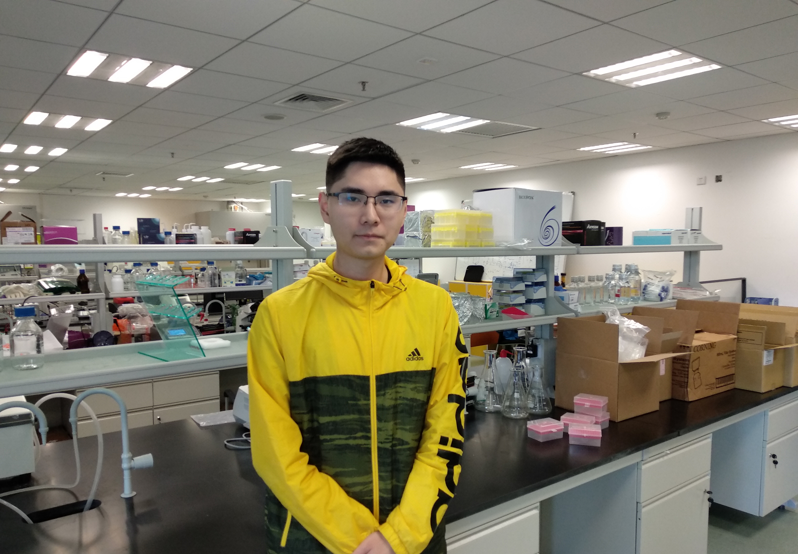
Author Profile
Hao-chen Sui
School: SSE
College: Diligentia
Major: Statistics and Data Science
High School: Chengdu NO.7 High School
Sui entered the drug development laboratory of Professor Bao-ting Zhu in the second semester of sophomore year. His research interests include data science, machine learning, computational biology, quantum chemistry, and quantitative finance.
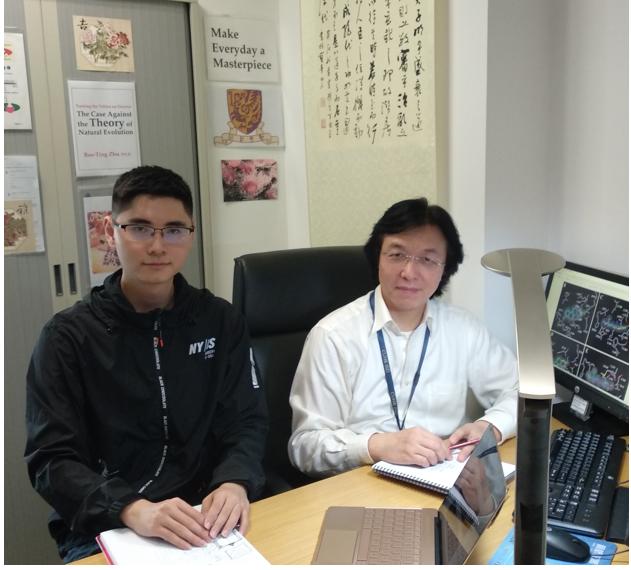
Supervisor Profile
Professor Bao-ting Zhu
Professor Bao-ting Zhu is currently the Vice-Dean of SSE of The Chinese University of Hong Kong, Shenzhen. His research interests include basic molecular pharmacology, oncology pharmacology, and disease molecular mechanics. The main research focuses on the role of steroid hormones and food-borne compounds in cancer prevention and treatment and their mechanisms at the cellular and molecular levels. He has published nearly 130 high-quality scientific papers across the globe as the first or correspondent author. His papers have been cited for about 8,000 times.
Paper introduction
Published journal: Biomolecules
Introduction: Biomolecules Biomolecules (ISSN 2218-273X) is an internationally peer-reviewed open-access journal focusing on biomass and its biological functions, structures, interactions with other molecules, and their microenvironment and biological systems.The journal is currently in the Q1 area of Biochemistry and molecular biology. Its impact factor is 4.6
Title:Stimulation of the Production of Prostaglandin E2 by Ethyl Gallate, a Natural Phenolic Compound Richly Contained in Longan
Abstract: This paper combines biological experiments with computational simulations to discover the molecular mechanism of peroxidase catalysis and reactivation in cyclooxygenase (COX) proteins. And for the first time, it was found that after entering the COX protein locus, the small molecule of ethyl gallate (shown in the figure below) can produce pharmacodynamic effects through mechanisms such as the electron transfer. In turn, it promotes the reactivation of related proteases and effectively prevents suicide inactivation of COX enzymes. Ethyl gallte is one of the main functional compounds in longan, therefore this study provides a molecular mechanism and explanation for the pharmacological effect of longan. In addition, the findings of this paper have guiding significance for designing new drugs targeting COX enzymes.
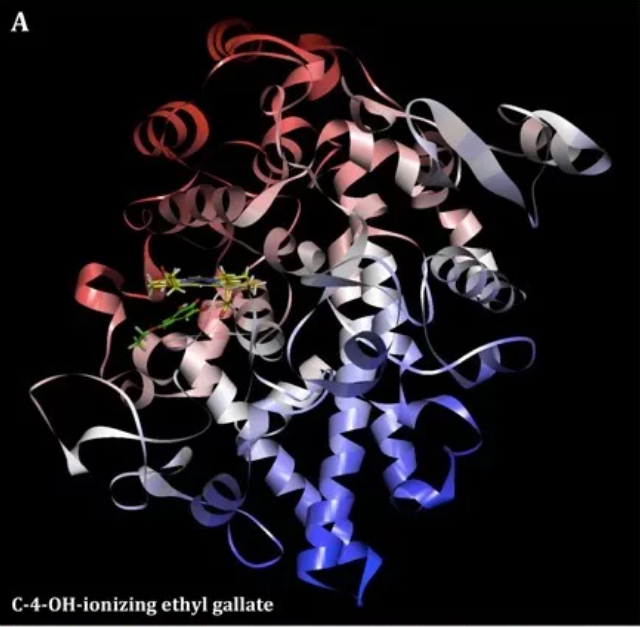
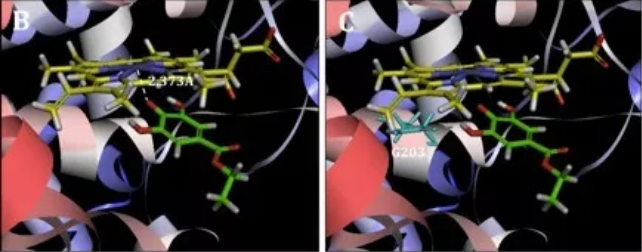
Interview
Q1: What is the opportunity to start this paper? What is your responsibility in this research? This paper is about cid ethyl esters and biological enzymes while your major is statistics and data science. How did your profession helped with the study?
A1: I think that my independent research ability and the initiative to communicate with the professor is the main reason why I can have the opportunity to start this paper and even be responsible for the entire project.
In terms of independent research, actually I felt a lot of pressure in the initial stage due to the lack of biological knowledge. You know my major is about data science and the Nobel Laureate lab focused on drug development. So what I decided to do at first is to collect various journal articles related to the subject, read and mark them one by one, record the key points of the operation in the paper, and verify these findings and conclusion all by self-study. Throughout the research process, I basically put all my free time into the lab. I often went to the lab to continue the data test after class. In such a high-intensity self-study process, you will find that your understanding of the project and the intuition of the problem will be greatly enhanced.
As for communication with professors, I took the initiative to contact Professor Zhu every day to discuss one-on-one issues. Because high-intensity self-study will inevitably bring many biological problems that they cannot solve. In fact, maintaining daily communication with a famous scholar like Professor Zhu is the most important point in the success of my entire project. While communicating with Professor Zhu, some of my doubts will be answered quickly, and some potential unknown problems can be deeply discussed. At the same time, the professor's experience will ensure that I will not get into the wrong way and this greatly improve my research efficiency.
In such scientific research, through continuous communication and learning, I tried to solve some problems that have not been solved in the current research field. These problems have finally become the goal and motivation of the project.
Our lab members can be basically divided into experimental and computational groups. I am mainly responsible for the entire computational modeling in the research, which includes statistical modeling analysis, biometric data mining, biomolecular docking simulations, molecular dynamics simulations, and quantum chemical calculations. We need to use data to pre-screen potential biopharmaceutical molecules. The computational bio-software was used for the protein test to select drug molecules and the quantum chemical software was used to calculate and predict various chemical parameters.
Many people may think that data science and biology are not highly relevant. But in my view, data science is a toolkit. We need to apply it to various fields, and biology is a big application area of data science that I have discovered. First of all, data science has cultivated my sensitivity to data, so when faced with a lot of biological data, I easily find the relationship between the data and choose appropriate model for the collocation test. Second, data science itself requires us to have a strong skill for model selection. So it allows me to combine data mining modeling, computational bio-simulation, and quantum chemistry calculations to test and optimize the result.
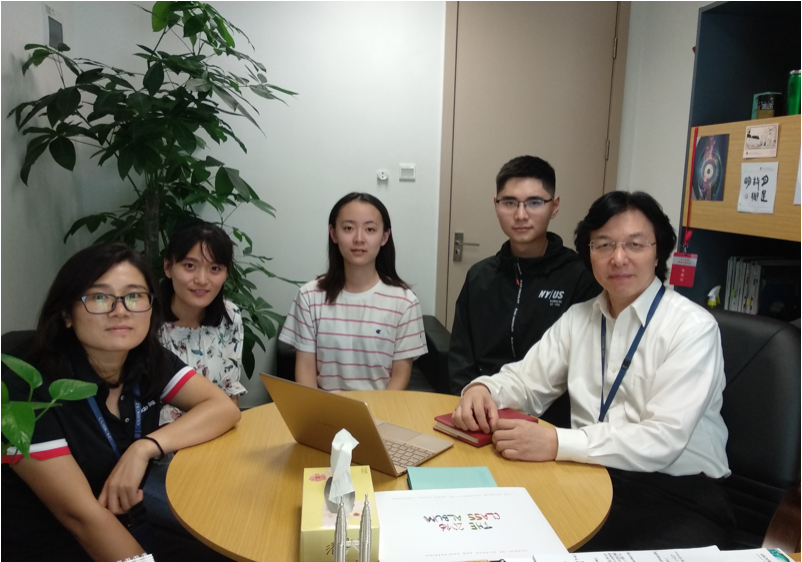
Q2: As a senior student in data science, what advice do you have for your younger brothers and sisters who study in our university? In the three years of studying at CUHK-Shenzhen, what do you think is your biggest change? What is the harvest? What is regrettable?
A2: As a data science student, I think the most important thing in data science is to apply what we learn to some specific areas. In class, we will learn some theoretical knowledge of statistics, machine learning, databases, etc. But this is not enough. Our expertise can be applied to a variety of research projects. We should take the initiative to contact the relevant professors and try some of research projects. At the same time, there are many global competitions in data science on the Internet. We can challenge ourselves in these competition in our leisure time. Accumulating various modeling methods in the competition also helps us better understand our expertise.
During the three-years study at CUHK-Shenzhen, I felt that my biggest change is that my initiative is much stronger. I take the initiative to turn to professors and directly exchange ideas with them, and participate in some large-scale activities to know more people.At the same time, on the basis of the course study, I also actively try some challenges to enhance my knowledge reserve. I think this ability is very valuable. It is The Chinese University of Hong Kong, Shenzhen that enables me to have more possibilities to make these changes. As for regrets, the biggest regret is that I am about to graduate.
Copywriter: Liu Haoxiang (SSE、Muse College)
